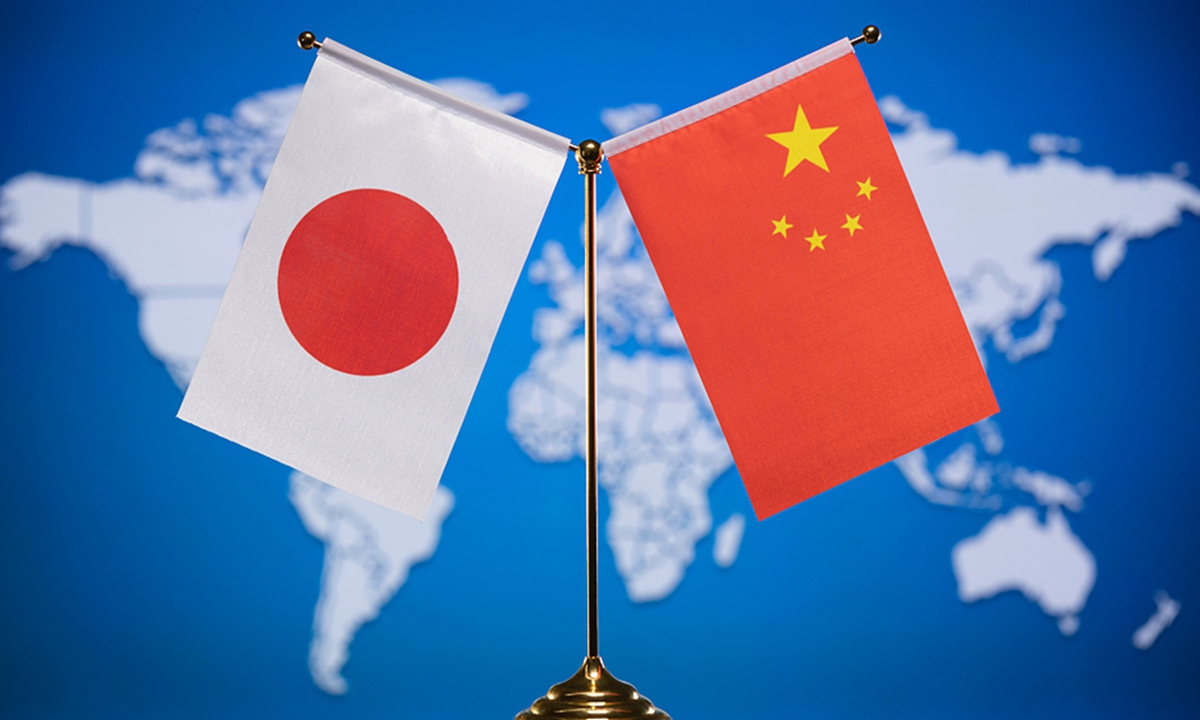Japan’s annual foreign policy report stresses importance of US ties, eyes ‘mutually beneficial relation’ with China

Photo: VCG
Japan on Tuesday released its annual government foreign policy report, which stressed the importance of Tokyo deepening ties with Washington while also reiterating its policy of promoting a "mutually beneficial relationship based on common strategic interests" with China.
A Chinese expert said the report indicates that Japan still appears to prioritize maintaining its alliance with the US and has not altered the dual nature of its China policy — one that seems to advocate engagement, cooperation, and dialogue, while simultaneously maintaining a stance of competition, containment, and even confrontation.
The annual government foreign policy report emphasized the importance of Tokyo's push to build a strong rapport and further deepen ties with US President Donald Trump's administration - a view that comes as Japan grapples with how to respond to his decision to slap the US ally with onerous tariffs, the Japan Times reported.
The 2025 Diplomatic Bluebook, presented by Foreign Minister Takeshi Iwaya at a Cabinet meeting the same day, said that Tokyo will communicate closely with Washington over various issues facing the international community and work to make solid contributions, said the report.
Regarding China, the report reiterated the government's policy of promoting a "mutually beneficial relationship based on common strategic interests" with the world's No.2 economy, a phrase revived in 2024's report after a four-year absence.
The biggest change in the 2025 Diplomatic Bluebook stems from the series of new challenges posed to Japan by the current US administration's foreign policy, particularly in terms of how to maintain the stability of the US-Japan alliance, Xiang Haoyu, a research fellow at the China Institute of International Studies, told the Global Times on Tuesday.
"Fundamentally, Japan still prioritizes its relationship with the US and has not altered the dual nature of its China policy - maintaining engagement, cooperation, and dialogue on one hand, while also pursuing competition, containment, and even confrontation on the other," he said.
He further noted that compared with the past, Japan's current approach to China appears more pragmatic and flexible. However, these adjustments, Xiang stressed, are seems to be tactical and expedient rather than a long-term strategic shift.
Meanwhile, NATO Secretary General Mark Rutte, visiting Japan for the first time since becoming head of the Belgium-based military alliance in October, was set to hold talks with Japanese Defense Minister Gen Nakatani later Tuesday and with Prime Minister Shigeru Ishiba on Wednesday, the Associate Press reported.
China's expansion of its armed forces has been "staggering," Rutte claimed on this visit, which was aimed at "projecting" the alliance's power in the Asia-Pacific region, said the AFP.
Rutte's so-called aim of "projecting" the alliance's power in the Asia-Pacific region has laid bare NATO's intention to interfere in the region's security and stability, Lü Chao, an expert at the Liaoning Academy of Social Sciences, told the Global Times. He further noted that NATO seems reluctant to see closer ties between China and Japan.
The US wants NATO members to be more involved in the Indo-Pacific region, Rutte claimed. He welcomed US Secretary of Defense Pete Hegseth's recent trip to Japan to ensure Washington's commitment to strengthen its alliance with Japan and presence in the region.
The Japan Times also reported that Rutte is scheduled to hold talks with Defense Minister Gen Nakatani later Tuesday. Ahead of the meeting, the defense chief referred to Rutte's visit as "very meaningful for furthering security and defense cooperation."
2025 marks the 80th anniversary of the victory of the Chinese People's War of Resistance Against Japanese Aggression and the World Anti-Fascist War. If Japan chooses to emphasize "continuing to promote practical cooperation" with NATO in the Asia-Pacific region at this time, this would have a detrimental impact on regional security, Lü said.
Since Japan states it is promoting a "mutually beneficial relationship based on common strategic interests" with China, it should face up to history and work with China toward the same goals, he added.



